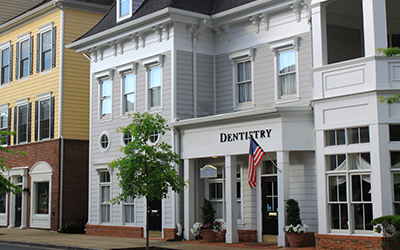Posted on May 28, 2012
Image Credit: © Dreamstime.com
Buying a Dental Practice – Part I
Main Content A+ A- A
By Larry Chatterley and Randon Jenson, CTC Associates
Most, if not all dentists start their careers with optimistic expectations of doing well financially only to find out in the real world practicing dentistry may not deliver the financial and/or emotional rewards they were seeking. They then feel a strong need to increase their income and to gain more control over their professional lives. You may have experienced this frustration already. If you have not yet, you can surely avoid it through proper planning and the implementation of the key concepts addressed in this article.
When it is the right time to purchase a dental practice?
The right time to buy varies with your needs and goals. If you have a strong need for substantial income and/or direct control over your professional career, then buying a dental practice may be your best option.
Buying a dental practice can produce $250,000 to $500,000 more in net earnings to the doctor during the first ten years of ownership when compared to starting a new practice and building it over the same time period. Unless dentists plan carefully and do start-ups only in high-growth areas, they may find themselves years behind their colleagues who opted to purchase a dental practice.
Perhaps the best indicator as to when is the right time, however, is how you feel about your situation. If you are uncomfortable with your current circumstances or are not sure what is best for you, seek assistance from someone who will help you determine the course of action that best meets your needs and goals.
Our experience suggests most doctors who do not have a plan early on for owning and operating a practice may be jeopardizing thousands of dollars in lost income. Far too many doctors wait too long hoping for the perfect opportunity. Remember, while taking a pro-active approach may present some risks, taking no action may involve even greater risks. By doing something positive, you have a greater chance for success.
What are the options?
When the time arrives for you to seriously consider a dental practice transition, you should know there are two basic ways to buy a practice: you can buy all of it, or you can buy a portion of it. The variations of those two basic structures are numerous. But first, you should decide what type of practice you want and whether or not you want to work and/or associate with another doctor over any extended period of time.
Another common variation besides the deferred buy-out mentioned above is the sale/walk-away, i.e, an outright purchase of a practice with the seller walking away at closing. If done correctly, this scenario can be very smooth and patient retention can be as high as 90% or better. A third, very popular arrangement is the pre-sale (or work-back) dental transition in which the practice is purchased outright from day one and the seller “works back” part-time as an associate for the buyer. This allows the seller to phase out of the dental practice at a comfortable pace while maintaining the integrity of the patient base and staff. If properly structured, pre-sale arrangements can be an excellent mechanism for lowering your risk while maintaining a good level of income. As with any long-term relationship, working with the right partner will require more effort than having them simply walk away, but the quality of life and financial rewards associated can be well worth it.
Each method, i.e., buying a portion or buying all of a dental practice, offers certain advantages and disadvantages. Carefully consider both the opportunities and risks associated with each approach before entering into any legally binding agreement. New relationships can be very rewarding if built properly; they can be devastating if they are not.

